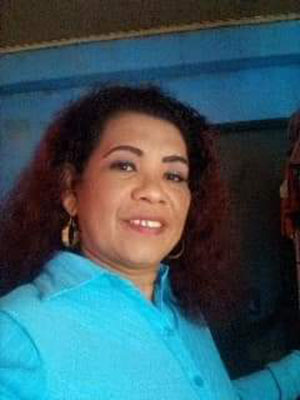The absence of essential social services in Port Kaituma, Region One means that there is no recourse for the more than 20 reported cases of child abuse, sexual assault, and suicide among the local youth, according to residents and community advocates. With no designated welfare officer in the region and limited access to mental health services, the vulnerable in the area are left without adequate support, prompting calls for an urgent intervention.
Stephanie Miguel, a longtime resident and child welfare advocate, has been providing informal support to vulnerable children in Port Kaituma since 2012. She told this newspaper that there is an increasing number of children approaching her with stories of abuse and unsafe living conditions. Many of these children, she said, have been subjected to physical and sexual abuse.
“These kids and sometimes their parents come to me when they have nowhere else to turn,” Miguel said, describing how children often reach out to her after trying to report their abuse to local authorities or speak to adults, only to face indifference or a lack of follow-through. “They’re told to report, but nothing happens. It’s heart-wrenching because they believe no one cares, and when they reach out, there is no justice. I had said I wasn’t going to be taking in any more children but when the children come, I can’t turn them away,” she added.
Miguel has documented two cases where children in the area took their own lives after failing to receive support. She emphasized that the lack of effective policing and judicial follow-up is leaving many families in despair. “There’s no follow-through on police reports, and when cases do get reported, they rarely go anywhere,” she said. “We are seeing children from Big Creek who feel invisible. Right now there are underaged young people there that have babies right in the backdam there, so then the problem is you have a leader but you can’t be a leader and can’t do nothing for the people, the money comes there for yourself and not for the community… it’s a mixed community, there is no school or anything there.”
Residents said the community has been calling for a welfare officer and a safe house for years. Officers at the police station are often overwhelmed by other duties, leaving sexual assault and domestic violence cases to languish without proper investigation or resolution.
“I have a girl staying with me, her mom brought her and explained her uncle was interfering with her, … she is just seven years and she wants to go to school so I am assisting her, but what happens to the rest in there? There are so much in there and that is not all alone. There was a boy from Big Creek too just underaged and he was sexually harassed by another teenager from Arakaka, right at the Port Kaituma Secondary School … ,” Miguel said
“We need a lot of help here. I love my job. I really love helping the children. There are so many children that I’m rescuing and they get big and they go on their own and one day I said I didn’t want more children, and then in September these two came and I couldn’t turn them away.
“We asked for a safe home, look how long. It will help provide employment for people, more people need to see what’s happening.”
For now, local advocates like Miguel continue to be the last line of defence for children in desperate need of care and protection.
The lack of social services is not just a legal issue but a growing public health crisis. With limited access to mental health care and no formal systems in place to protect children, the community is also grappling with an increase in trauma-related conditions such as depression and anxiety among young people.
Advocates have been calling for greater sensitivity and awareness training for the local population, particularly in recognizing the signs of abuse and offering more robust support networks for those in need.






